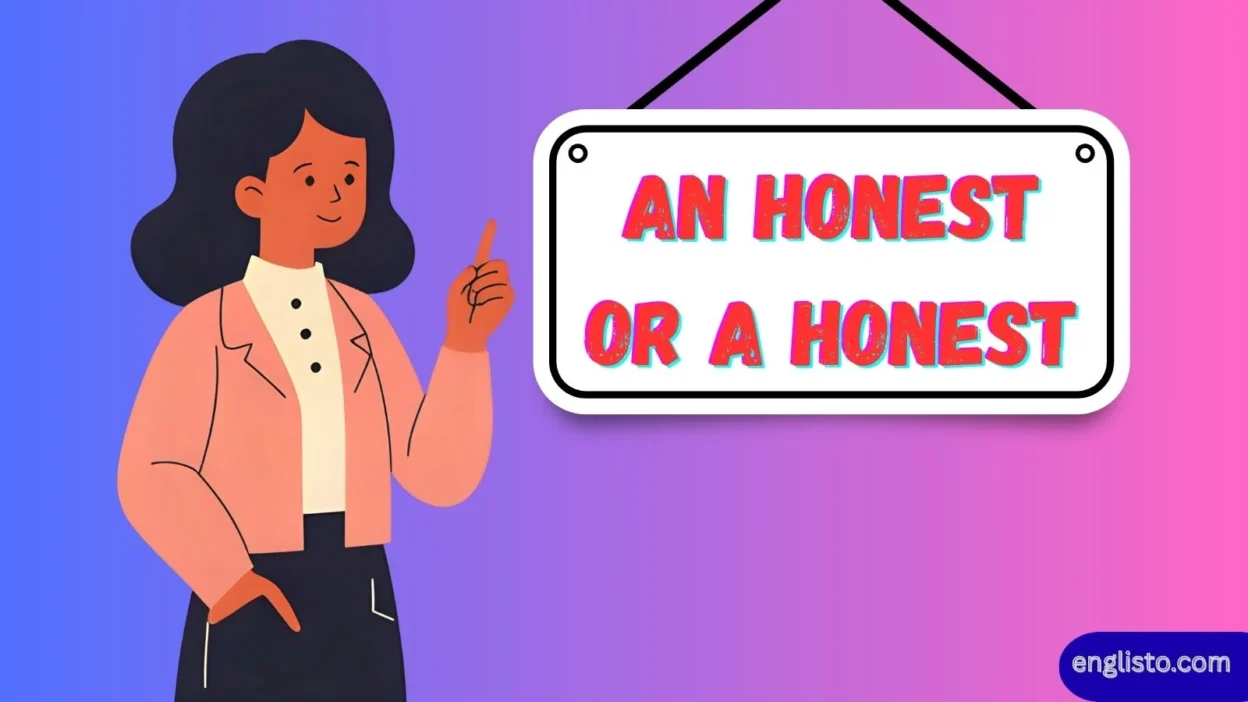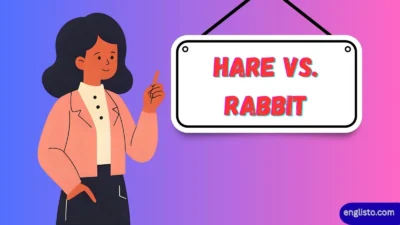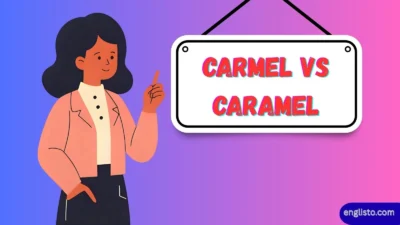English learners often stumble over small details, and one of the most common questions is: Should we say An Honest or A Honest.
At first glance, it seems obvious—“honest” starts with the letter h, so shouldn’t we use a? But English isn’t always about spelling; it’s about sound. The “h” in honest is silent, which changes everything.
This article is your in-depth, friendly guide to mastering this rule. We’ll break it down with examples, tables, real-life sentences, and even common mistakes learners make. By the end, you’ll never hesitate again when choosing between a and an.
Why Do We Say “An Honest” Instead of “A Honest”?
The short answer: It’s all about sound, not spelling.
- The rule in English is simple:
- Use “a” before words that start with a consonant sound.
- Use “an” before words that start with a vowel sound (a, e, i, o, u) or a silent h.
- Use “a” before words that start with a consonant sound.
👉 Since honest is pronounced /ˈɒnɪst/ (the “h” is silent), it starts with the vowel sound “o”.
That’s why we say “an honest man” and not “a honest man.”
Example Sentences
- ✅ She is an honest person.
- ✅ He gave me an honest answer.
- ❌ She is a honest person. (incorrect)
Understanding Indefinite Articles: “A” vs. “An”
Both a and an are called indefinite articles in English. They’re used with singular, countable nouns when the exact identity of the noun is not important.
| Article | Used Before | Example |
| a | Consonant sound | a dog, a house, a university |
| an | Vowel sound / silent h | an egg, an hour, an honest man |
Notice the difference with university:
- It starts with the letter “u,” but the sound is /juː/ (like “you”), a consonant sound.
- So we say: a university, not an university.
The Role of the Silent “H”
The letter h is tricky in English because sometimes it’s silent, and sometimes it isn’t.
- Silent h → use an
- Pronounced h → use a
| Word | Pronunciation | Correct Article | Example Sentence |
| honest | /ˈɒnɪst/ | an | She is an honest student. |
| honour | /ˈɒnər/ | an | It was an honour to meet her. |
| hour | /ˈaʊər/ | an | I’ll be back in an hour. |
| heir | /ɛər/ | an | He is an heir to the throne. |
| hat | /hæt/ | a | He wore a hat yesterday. |
| hotel | /hoʊˈtɛl/ | a | We stayed in a hotel near the beach. |
Common Mistakes with “A” and “An”
Many learners confuse spelling with pronunciation, which leads to errors.
- a honest mistake
- an university student
- an user manual
👉 Correct versions:
- an honest mistake
- a university student
- a user manual
Everyday Usage: Real-Life Examples
You’ll often hear an honest in everyday conversations, books, and movies.
- “He’s an honest man who works hard for his family.”
- “Give me an honest answer, not something sugar-coated.”
- “It was an honour to serve the country.”
Meanwhile, “a honest” is virtually never used by native speakers—it sounds unnatural and ungrammatical.
Memory Tricks to Remember the Rule
Here are some simple ways to remember whether to use a or an:
- Think in sounds, not letters. If the first sound is a vowel (a, e, i, o, u), use an.
- Say it out loud. Your ear will tell you what sounds natural:
- “an honest” flows smoothly.
- “a honest” sounds clumsy.
- “an honest” flows smoothly.
- Watch the silent h. Words like honest, honour, hour, heir always need an.
Synonyms and Related Words
Understanding synonyms can help expand vocabulary while practicing this rule.
| Word | Synonyms | Example |
| honest | truthful, sincere, genuine | She gave an honest opinion. |
| honour | respect, privilege, glory | It was an honour to win. |
| hour | time, moment, sixty minutes | I’ll be there in an hour. |
Famous Quotes Using “An Honest”
- “No man has a good enough memory to be an honest liar.” – Abraham Lincoln
- “The true measure of a man is how he treats someone who can do him no good—be an honest person.”
Mini Grammar Test
Fill in the blanks with the correct article:
- She gave me ___ honest reply.
- He waited for ___ hour in the rain.
- We visited ___ university in Cambridge.
- He wore ___ hat at the party.
- She met ___ heir to the throne.
Answers:
- an
- an
- a
- a
- an
FAQs about “An Honest” or “A Honest”
Q1: Why do we say “an honest” instead of “a honest”?
Because “honest” begins with a vowel sound (“o”), not a consonant sound.
Q2: Is “a honest” ever correct?
No. It’s always incorrect in modern English.
Q3: Do all words starting with “h” take “an”?
No. Only when the “h” is silent (e.g., honest, honour, hour, heir).
Q4: What about “historic”? Should we say “a historic” or “an historic”?
Both forms are used. Traditionally “an historic” was common, but today “a historic” is more standard in American English.
Q5: How can I quickly decide between “a” and “an”?
Just listen to the first sound. If it’s a vowel sound, use “an.” If it’s a consonant sound, use “a.”
Conclusion
The choice between “an honest” and “a honest” isn’t about spelling—it’s about pronunciation. Since “honest” starts with a silent h, we hear a vowel sound, so the correct phrase is always “an honest.”
Remember:
- Think sound, not letter.
- Use an before silent h words like honest, honour, hour, heir.
- Use a before pronounced h words like hat, hotel, house.
Mastering this tiny detail makes your English sound natural, confident, and correct. Next time you speak or write, you’ll know without hesitation: it’s always “an honest mistake”—never “a honest mistake.”



